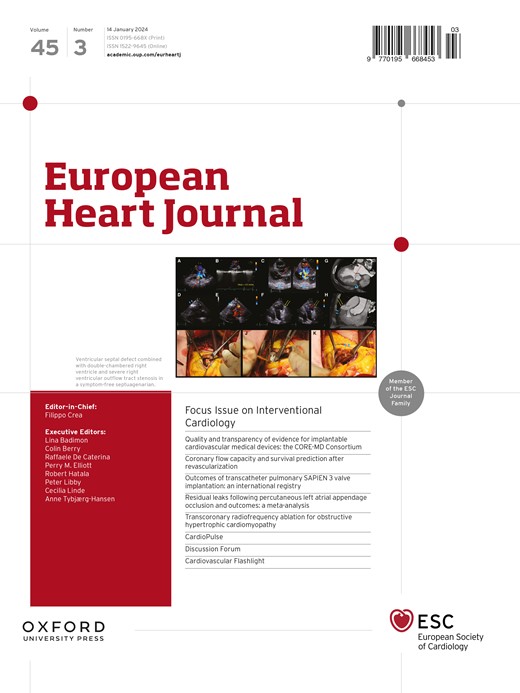Artificial intelligence in cardiovascular pharmacotherapy: applications and perspectives.
IF 37.6
1区 医学
Q1 CARDIAC & CARDIOVASCULAR SYSTEMS
引用次数: 0
Abstract
Recent advances in artificial intelligence (AI) have shown great potential in improving cardiovascular pharmacotherapy by optimizing drug selection, predicting therapeutic efficacy and adverse effects, ultimately improving patient outcomes. Leveraging techniques like machine learning and in silico modelling, AI can identify populations likely to benefit from specific treatments, expedite novel drug discovery and reduce costs. Computational methods can also facilitate the detection of drug interactions and tailor interventions based on real-world data, supporting personalized care. Artificial intelligence-based approaches also show promise in streamlining clinical trial design and execution, leveraging on real-time data on patient responsiveness, enhancing recruitment efficiency. However, in order to fully realize these benefits, robust validation across diverse patient populations is necessary to ensure accuracy and generalizability. In addition, addressing concerns regarding data quality, privacy, and bias is equally critical to avoid exacerbating existing healthcare disparities. Scientific societies and regulatory agencies must ultimately establish standardized frameworks for data management, model certification, and transparency, to enable safe and effective integration of AI into clinical practice. This manuscript aims at systematically reviewing the current state-of-the-art applications of AI in cardiovascular pharmacotherapy, describing their current potential in guiding treatment decisions, refine trial methodologies and support drug discovery.人工智能在心血管药物治疗中的应用与展望。
人工智能(AI)的最新进展通过优化药物选择、预测治疗疗效和不良反应,最终改善患者预后,在改善心血管药物治疗方面显示出巨大潜力。利用机器学习和计算机建模等技术,人工智能可以识别可能从特定治疗中受益的人群,加快新药发现并降低成本。计算方法还可以促进药物相互作用的检测,并根据现实世界的数据定制干预措施,支持个性化护理。基于人工智能的方法也有望简化临床试验的设计和执行,利用患者响应的实时数据,提高招聘效率。然而,为了充分实现这些好处,有必要在不同的患者群体中进行稳健的验证,以确保准确性和普遍性。此外,解决有关数据质量、隐私和偏见的问题对于避免加剧现有的医疗保健差距同样至关重要。科学协会和监管机构必须最终建立数据管理、模型认证和透明度的标准化框架,以便安全有效地将人工智能整合到临床实践中。本文旨在系统地回顾当前人工智能在心血管药物治疗中的最新应用,描述它们在指导治疗决策、完善试验方法和支持药物发现方面的潜力。
本文章由计算机程序翻译,如有差异,请以英文原文为准。
求助全文
约1分钟内获得全文
求助全文
来源期刊

European Heart Journal
医学-心血管系统
CiteScore
39.30
自引率
6.90%
发文量
3942
审稿时长
1 months
期刊介绍:
The European Heart Journal is a renowned international journal that focuses on cardiovascular medicine. It is published weekly and is the official journal of the European Society of Cardiology. This peer-reviewed journal is committed to publishing high-quality clinical and scientific material pertaining to all aspects of cardiovascular medicine. It covers a diverse range of topics including research findings, technical evaluations, and reviews. Moreover, the journal serves as a platform for the exchange of information and discussions on various aspects of cardiovascular medicine, including educational matters.
In addition to original papers on cardiovascular medicine and surgery, the European Heart Journal also presents reviews, clinical perspectives, ESC Guidelines, and editorial articles that highlight recent advancements in cardiology. Additionally, the journal actively encourages readers to share their thoughts and opinions through correspondence.
 求助内容:
求助内容: 应助结果提醒方式:
应助结果提醒方式:


